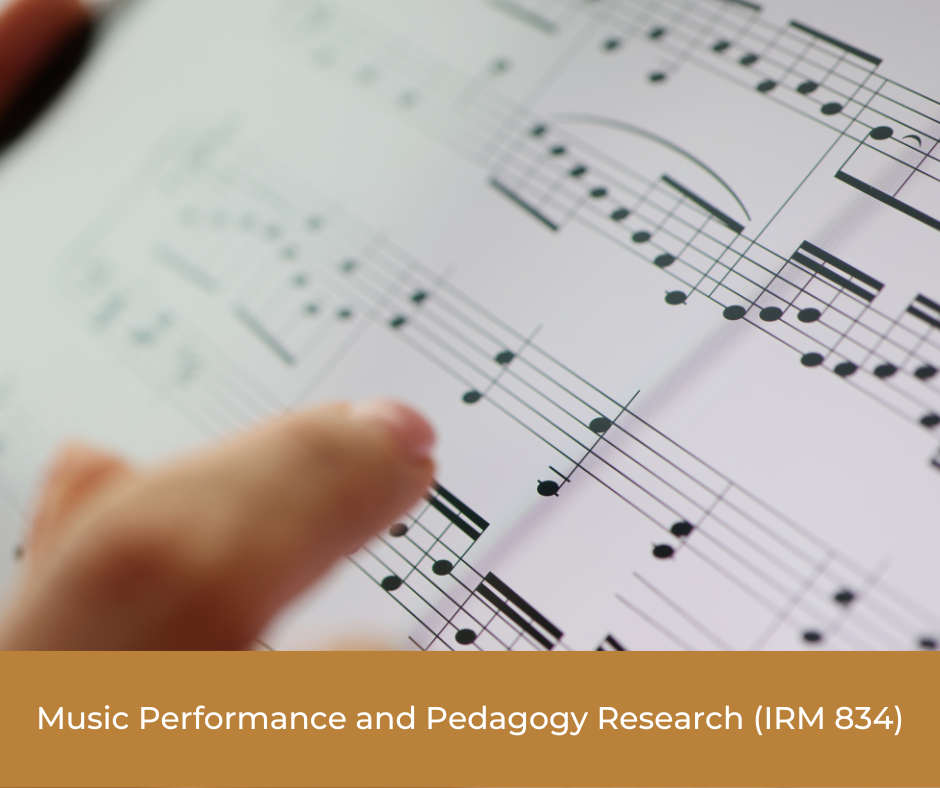Course Description:
The Music Performance and Pedagogy Research course is an advanced exploration of the research aspects related to music performance and pedagogy. Students will delve into innovative teaching methods, performance psychology, and the scholarship of teaching music. This course equips students with the knowledge and research skills necessary to enhance music education, both in pedagogy and performance.
Outline of Major Content Areas:
- Music Performance Research Methodologies:
- Study and application of research methodologies specific to music performance.
- Design and execution of music performance research projects.
- Pedagogical Approaches in Music Education:
- Analysis of various pedagogical methods used in music education.
- Development and evaluation of innovative teaching techniques and materials.
- Music and Cognitive Development:
- Examination of the relationship between music education and cognitive development in students.
- Exploration of how music contributes to intellectual and emotional growth.
- The Psychology of Music Performance:
- Understanding the psychological factors that influence music performance.
- Application of performance psychology principles to enhance musicians’ performance.
- Practical Projects:
- Conducting performance-based research projects, such as performance analysis or teaching material development.
- Exploration of new teaching methods to enhance music education.
Course Learning Outcomes:
Upon completion of this course, students will have achieved the following learning outcomes:
- Research Competence: Develop advanced skills in conducting research related to music performance and pedagogy.
- Pedagogical Innovation: Create, assess, and apply innovative teaching methods and materials to enhance music education.
- Understanding Cognitive Development: Grasp the relationship between music education and cognitive development in students, fostering well-rounded musicians.
- Performance Psychology: Understand the psychological factors influencing music performance and apply performance psychology principles.
- Application of Research: Apply research findings and pedagogical insights to enhance music performance and education in practice.
Methods for Assessing Student Learning:
To assess student learning in the Music Performance and Pedagogy Research course, a combination of methods will be used to evaluate students’ understanding and application of the course content:
- Research Projects: Students will conduct research projects focusing on music performance, pedagogy, or related topics, demonstrating their research competence.
- Pedagogical Material Development: Creation and assessment of innovative teaching materials and methods for music education.
- Class Participation and Discussions: Active participation in class discussions and activities related to music performance research and pedagogy.
- In-Class Presentations: Presentations on research findings and innovative teaching methods, encouraging students to communicate their insights effectively.
- Research Papers or Reports: Students may be required to write research papers or reports on specific topics related to music performance and pedagogy.
- Practical Demonstrations: Practical demonstrations of performance psychology principles or new teaching techniques in music education.
By utilizing these diverse assessment methods, students will not only gain advanced research skills but also develop innovative teaching methods and materials to enhance music education and performance, bridging the gap between theory and practice in the field of music.
